Apple, which has always cared about its public image, has been thoroughly exposed this time due to its shortcomings in AI.
Author: Moonshot
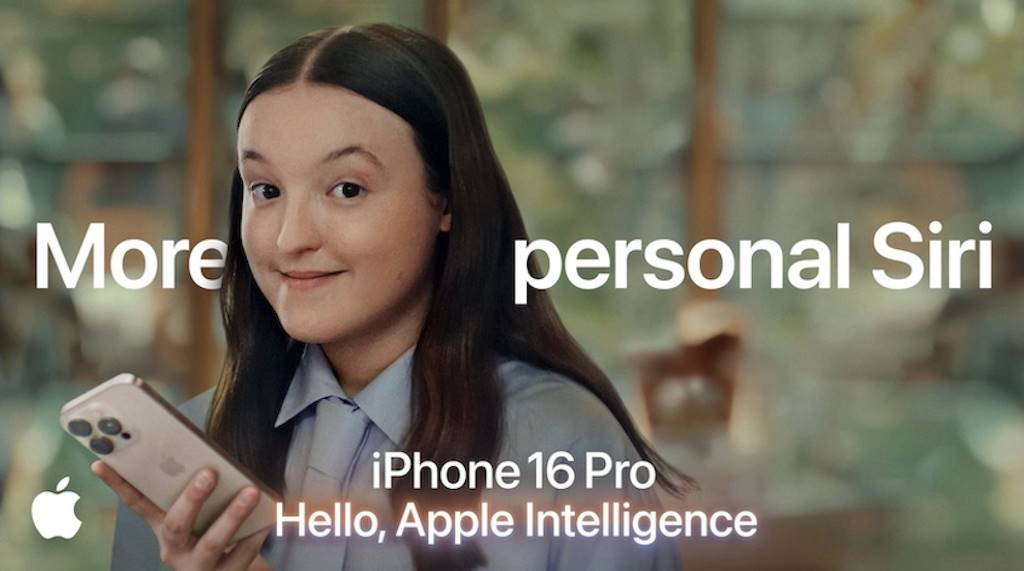
AI has been hot for almost three years now.
Major tech giants are rushing to invest and get involved, yet Apple, which is closest to our daily lives, seems the farthest from AI.
The biggest giant appears to have gone invisible in the face of the hottest trend.
At last year's WWDC in June, Apple slowly released Apple Intelligence, but nearly a year later, for most users, Apple Intelligence remains just a voice without a form.
The whole world sees that Apple is struggling with AI, but no one knows what exactly has happened.
Renowned Apple analyst Mark Gurman recently published a lengthy article titled "Why Apple Still Hasn’t Cracked AI," revealing the internal ambivalence towards AI, internal struggles, and insurmountable technical bottlenecks.
Notably, Gurman used the phrase "Still hasn’t," which already sets the tone for Apple's current situation.
This article will reorganize the original text to present Apple's history, current status, root problems, and future challenges in the AI field, analyzing why Apple is struggling in the AI race, making AI its Achilles' heel.
01 Siri from 14 Years Ago: The Concept of a Large Model
On October 4, 2011, the day before Steve Jobs passed away, Siri was born as a legacy left to Apple.
At that time, Siri seemed like a product of science fiction come to life; it could understand users' voice commands, make restaurant reservations, find movie theaters, or hail a taxi. Apple once again turned a futuristic technology concept into a mainstream product.
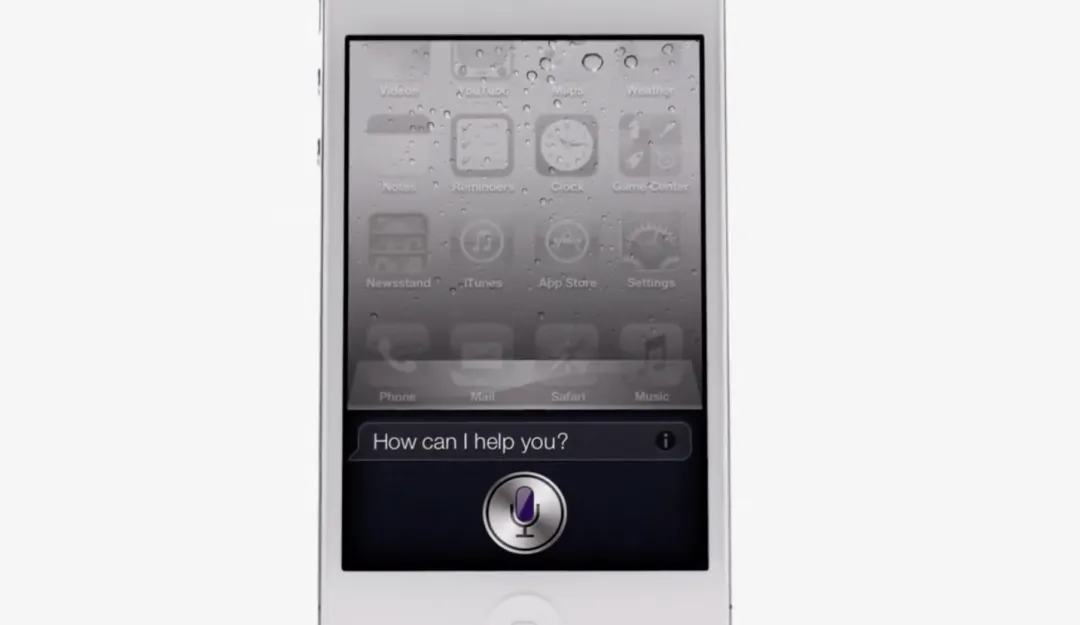
Siri launched alongside the iconic iPhone 4s | Image Source: Apple
At that time, Steve Jobs was not very interested in building a search engine.
A person who worked with him said, "Jobs didn’t believe users would actively search for things; he thought Apple's responsibility was to carefully select and present the content users wanted." This philosophy, like many of Jobs' beliefs, continued to profoundly influence Apple after his death.
When Jobs first encountered Siri, which was still an app in the App Store, he was immediately attracted.
Siri's co-founder Dag Kittlaus recalled that the ultimate goal of Siri was "to allow you to speak to the internet, and the assistant would handle everything for you. You wouldn’t even need to know the source of the information; the issues discovered by apps and websites would also be resolved." This is precisely the most widespread application scenario for large language models today.
Jobs quickly realized that Siri was much more than just an app; he soon contacted Kittlaus and invited the Siri team to his home for a meeting. During a three-hour meeting, Jobs proposed to acquire their company. Kittlaus initially rejected the acquisition offer but could not withstand Jobs' persistent calls for 24 consecutive days.
Ultimately, Kittlaus agreed to sell Siri, and Jobs immediately listed Siri as one of Apple's top development projects, dedicating himself to its research and development even in the final days of his life.
At that time, Siri led the smart voice assistant market; however, a few years later, competitors like Google, Amazon, and Xiaomi launched more advanced voice assistants and smart speakers, while Siri showed no significant progress.
With the launch of Siri, Apple also began research in machine learning, but it was mainly used for facial and fingerprint recognition, smart suggestions (like reminding you when to leave based on traffic conditions), improving maps, and the then-priority projects: headsets and cars.
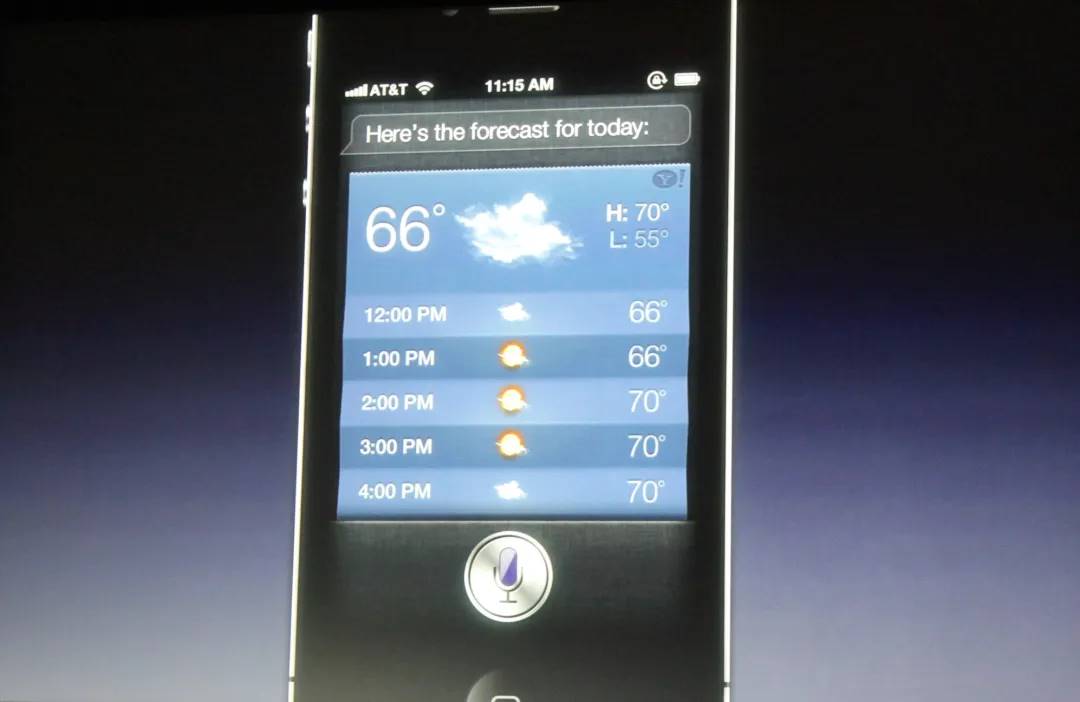
Using Siri to check the weather | Image Source: Apple
In the initial years, Siri's development focus was solely on basic tasks, such as providing weather information, setting timers, playing music, and handling text messages.
Looking at the actions taken, Apple had early plans in the AI industry; they acquired several small AI companies, including machine learning firms Laserlike, Tuplejump, and Turi.
According to insiders, Apple even considered acquiring Mobileye Global Inc. for about $4 billion, which could have been Apple's largest acquisition ever.
Mobileye was developing accelerated autonomous driving systems and computer vision technology. However, Apple ultimately abandoned the deal, and in 2017, Intel acquired Mobileye for $15 billion.
So, looking at the direction, Apple did not invest AI in the voice assistant field.
At that time, OpenAI, which had only been established for half a year, claimed it would create "general" robots. But Siri remained as it was at the time of its acquisition, setting alarms, checking the weather, and playing music on countless iPhones.
02 Expectations, Infighting, and Exclusion
Why did Apple, with its wealth, status, and strength, stumble in AI? Perhaps only seasoned Apple analyst Mark Gurman has access to so many insider stories, as he extensively reported on the internal infighting at Apple regarding AI.
In 2018, Apple poached John Giannandrea (known in the industry as JG) from Google to lead AI.
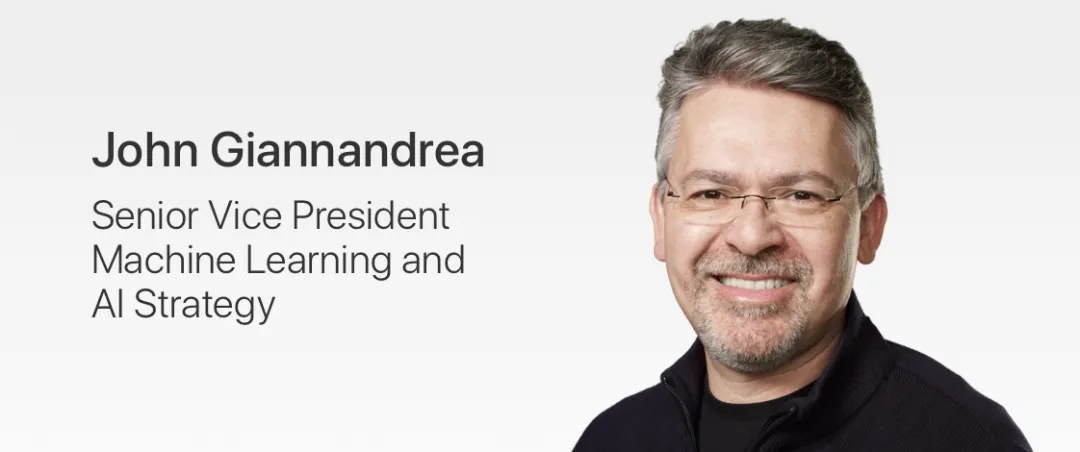
Apple AI head John Giannandrea | Image Source: Apple
JG previously led Google's search and AI departments, deploying AI technology in products like Google Photos, Translate, and Gmail.
"JG was not only seen as the most influential executive at Google after the CEO, but he also served as the Chief Technology Officer at the internet pioneer Netscape," said a person involved in the hiring process. "Could we find someone more suitable than him?"
For Apple, hiring JG not only dealt a blow to competitor Google but was also expected to be the first step in transforming Apple into an AI leader.
In a press release at the time, Cook stated, "Machine learning and AI are crucial for Apple's future development; they will not only fundamentally change how people interact with technology but have already brought significant improvements to users' lives. We feel very fortunate to work alongside John. As a leader in the AI field, he will surely drive our significant progress in this critical area."
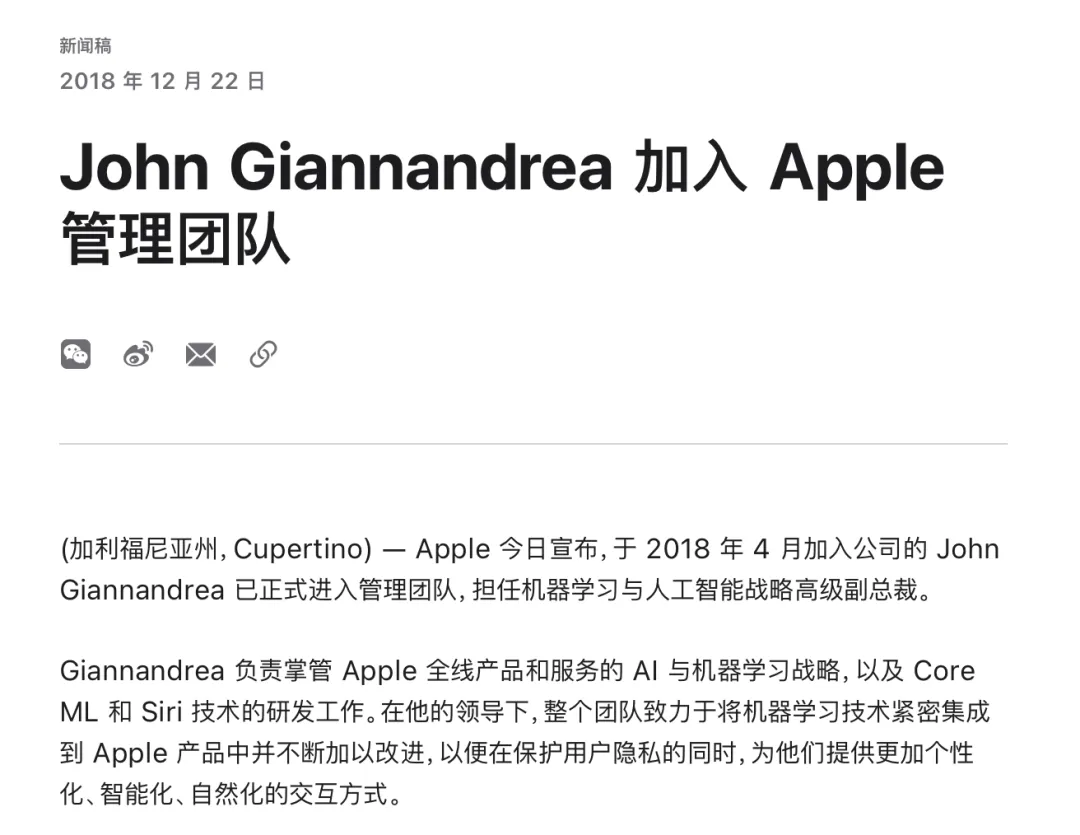
John Giannandrea joined Apple in 2018 to lead AI and machine learning | Image Source: Apple
However, looking back seven years later, that expectation and optimism have vanished. Apple's AI has not only stagnated but has fallen further behind.
The core issue is:
Executives have differing understandings of the AI roadmap.
Some senior executives responsible for software engineering believe Apple should highlight AI more in iOS. Around 2014, one executive stated, "We quickly realized this is a revolutionary technology, far more powerful than we initially understood." But they could not persuade Craig Federighi, who oversees iOS, to take AI seriously; "many suggestions fell on deaf ears."
However, Cook unexpectedly had a positive view of AI. A person who worked with him said, "Cook is one of the most optimistic about AI within Apple. He has always been frustrated that Siri lags behind Alexa. He is also unhappy that Apple has failed to secure a place in the smart speaker market."
JG's judgment on AI has been wavering.
When JG joined Apple in 2018, according to other executives' recollections, he believed that Apple's closed software ecosystem was a unique advantage, allowing for the immediate deployment of the latest features to billions of devices.
But JG soon discovered that Apple needed to invest hundreds of millions of dollars for large-scale testing and image and text labeling to train large models. JG brought in top AI researchers from Google and formed a team responsible for testing and data analysis. Subsequently, JG turned his attention to Siri, replacing its head and proposing to cut down on the rarely used features of Siri.
However, JG's efforts were often obstructed. According to several colleagues, software head Craig Federighi was unwilling to invest heavily in AI; he did not see AI as a core capability for mobile devices.
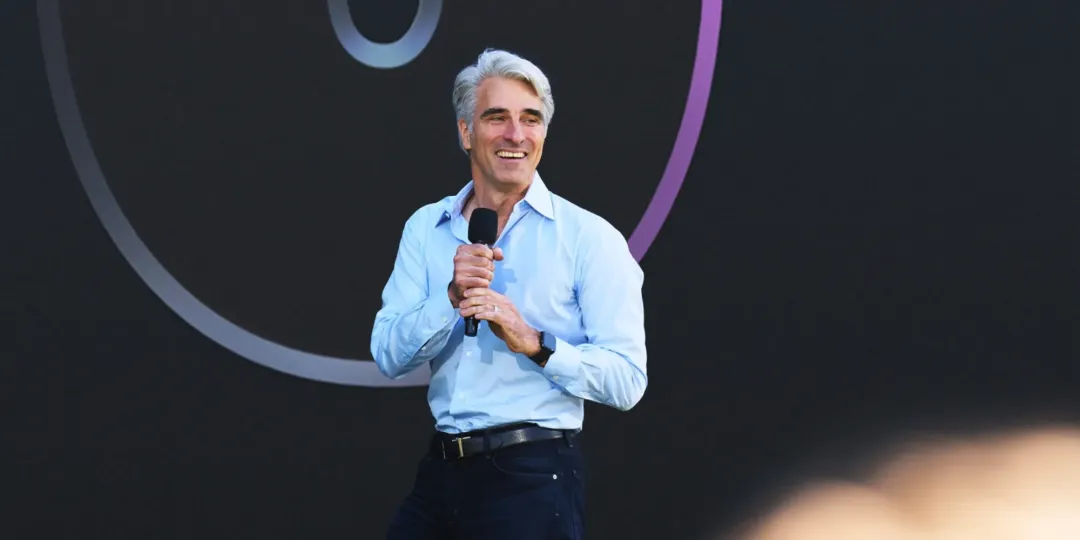
Craig Federighi is a familiar face at press conferences, having always led Apple's software team | Image Source: Apple
A long-time Apple executive said, "Craig is not the type of person who would say, 'We need to do something big; we need more budget and people.'"
Other leaders shared similar reservations; an old executive said, "In the AI field, you have to invest first to know what the product is. This is not how Apple operates. Apple knows the final goal when developing a product… Our usual strategy is to enter late, leverage over a billion users, and steadily defeat everyone in the end."
But this strategy does not work for AI. The release of ChatGPT in November 2022 caught Apple off guard.
A senior executive stated that before that, Apple "didn't even have the concept of Apple Intelligence."
Another executive said, "OpenAI's actions were not a secret; anyone paying attention to the market should have seen it and invested fully."
Less than a month after the release of ChatGPT, Craig Federighi began using generative AI to write code for software projects. According to insiders, he suddenly saw the potential of AI and teamed up with JG and other executives to start meeting with AI companies like OpenAI and Anthropic, quickly learning about the latest models and market dynamics. From that point on, Craig Federighi demanded that as many AI features as possible be incorporated into iOS 18 in 2024.
JG began to assemble a team to develop large language models, but they were already years behind their competitors.
According to multiple employees, various product development teams within Apple were each responsible for a portion of AI research and development, resulting in difficulties in unifying technology, progress, and compatibility.
At the WWDC in 2024, Apple Intelligence made its appearance, but its capabilities were somewhat lacking.
Apple's generative AI capabilities are indeed behind; according to Bloomberg, there is an internal chatbot at Apple that can handle basic image generation, but it lags at least 25% behind ChatGPT and shows significant deficiencies in accuracy when handling most queries.
To provide consumers with the AI products they truly want, Apple had to negotiate with competitors like Google, Anthropic, and OpenAI.
This created further divisions internally, as JG advocated for using Google's Gemini, arguing that OpenAI's protection of personal data and sustainability was inferior to Google's. However, Apple's corporate development team disagreed, favoring OpenAI, and thus at WWDC, it was announced that requests that Siri could not handle would be forwarded to ChatGPT.
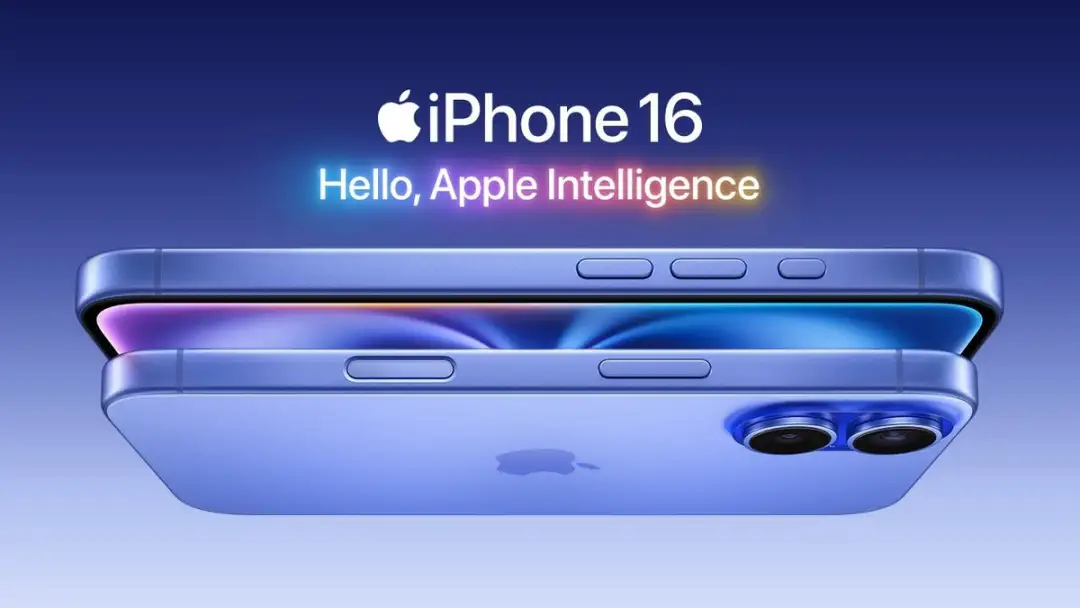
The iPhone 16, which prominently features Apple Intelligence, has yet to "deliver" | Image Source: Apple
Apple's lack of a self-developed AI chatbot has made many executives uneasy, but JG does not believe that large models are the future of AI.
According to several employees, JG believes that AI agents will take years to truly replace humans, and that most consumers, like him, do not trust generative AI.
These employees say this explains why JG has not fully committed to creating a consumer-facing competitor to ChatGPT. They revealed that JG has stated that consumers do not want tools like ChatGPT.
Internally at Apple, JG has borne most of the blame for delays and mistakes. According to multiple employees, JG has struggled to integrate into Apple's core executive circle, where "those executives have worked together for decades, operating the company like a family business."
JG's position is quite awkward; he is an external hire who finds it difficult to drive core changes at Apple. According to an employee familiar with him, "JG should have been more proactive in securing large funding, but he is not a salesperson; he is a technical expert."
Some also say that JG is not hands-on enough and has not strictly demanded accountability from his team. One executive said, "Other engineering teams at Apple are all in, delivering on time, while JG's team is not; they lack execution." This impression of "laxity" has also extended to benefits.
Unlike other Silicon Valley giants, Apple headquarters employees must pay for cafeteria meals. However, during the rush to develop Apple Intelligence, some of JG's engineers frequently received free meal vouchers, causing dissatisfaction among other teams. One employee said, "Apple doesn't provide free meals, but their team delivered late by a year and still gets free lunches." These subtle differences in treatment have sparked divisions between different teams within Apple.
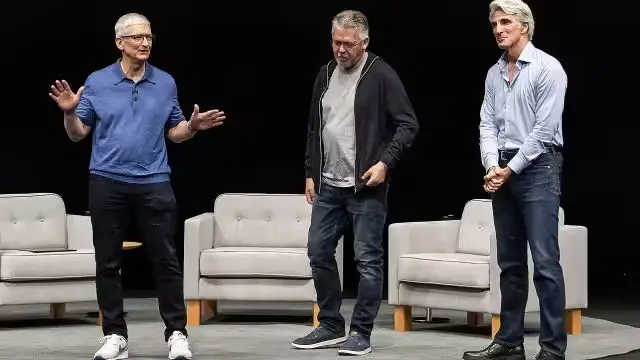
Left: Cook, Center: JG, Right: Craig Federighi | Image Source: Bloomberg
JG's so-called lack of urgency may not only be a personality issue but also a philosophical consideration regarding his understanding of AI.
He has consistently held a conservative attitude towards the pace of AI development and has questioned the value of chatbots, believing that the threats from competitors like OpenAI, Meta, and Google are not urgent.
Some of Apple's colleagues have stated that JG insists that the AI assistant users want should be the main interface of the device, rather than a specific application. Despite facing delays and setbacks, he remains committed to this vision.
In March of this year, JG was stripped of all product development control, including Siri and the robotics project. According to other executives, Cook lost confidence in JG's ability to execute on new product development.
JG retained oversight of AI, large language model development, AI analytics, and some development teams. According to insiders, some executives have discussed reducing JG's responsibilities or gradually retiring him, but Craig Federighi and others are concerned that if JG leaves, the top researchers and engineers he brought in may also depart.
Currently, JG has chosen to stay, telling colleagues that he does not want to leave until Apple's AI work is on the right track. He also admitted that not being responsible for Siri has relieved some pressure.
03 Technological Lag: The Crossroads of Privacy
The missteps of tech giants cannot simply be attributed to JG alone.
The marketing and advertising teams prematurely promoted unfinished features, Craig Federighi is the final decision-maker for software projects, and Cook set the overall product development culture for the company.
Even the former CFO was overly conservative when procuring GPUs; Apple did not leverage its market dominance and cash reserves, instead opting for a slow, conventional procurement of AI hardware. As a result, most of the global GPUs were snatched up by competitors like Amazon and Microsoft, causing Apple's AI model training speed to slow down.
According to executives from Apple and other companies, Apple's AI workforce is far smaller than that of its competitors, and it has procured fewer GPUs for training and running large language models.
For Apple, missing out on potentially disruptive technology is not fatal. After all, Apple often allows its peers to explore new technologies to validate the market before refining products and launching well-designed, user-friendly versions.
This strategy has also shaped users' perception of Apple as "not seeking the latest, but the best." Historically, Apple has become the world's most valuable tech company through meticulously crafted products, curated content, and annual software updates.
Apple thinks this way too; during the earnings call in May, when Cook was asked by shareholders about the delays in AI, he stated that it simply needed more time to meet Apple's quality standards, "There are not many other reasons; it just took a bit longer than we expected."
But the question is, how long is too long? Apple has already invested significant resources in AI with little return. Moreover, AI is a faster and more complex technology.
Looking back at history, Apple's most successful products have been built on core technologies developed internally, such as the multi-touch technology of the iPhone and the self-developed M-series chips for the Mac. However, in AI, it is hard to see Apple's technological prowess.
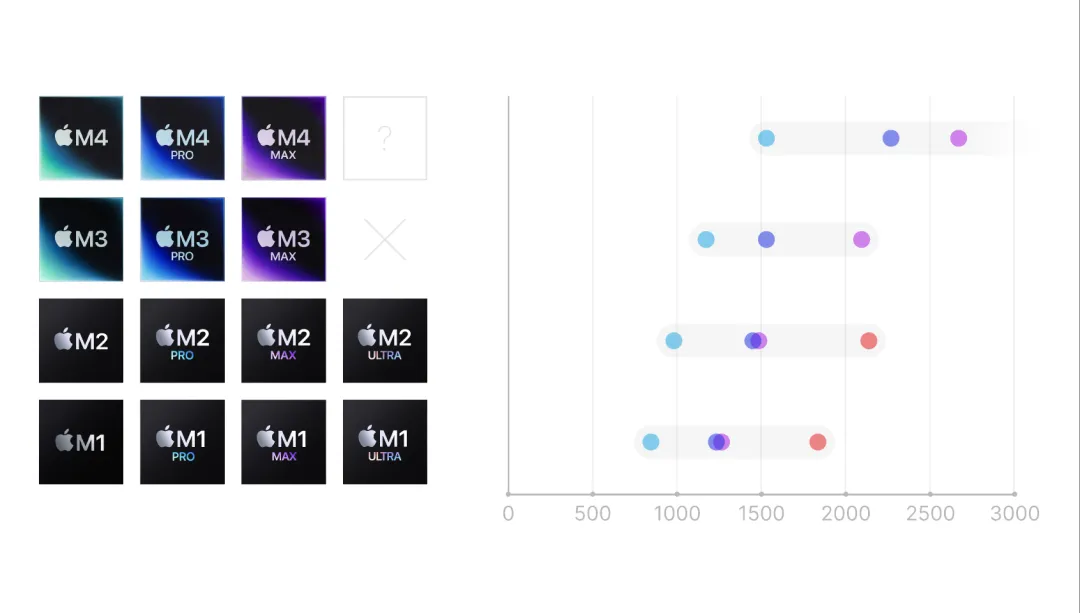
Apple's self-developed M-series chips have fully penetrated its hardware line | Image Source: Figma
Furthermore, in AI, Apple faces a technological bottleneck that other giants do not: data utilization.
For years, Apple has promoted user privacy as a selling point, but this has now become an obstacle to their AI development.
With 2.35 billion active devices, Apple possesses more web search, user behavior, and communication data than many competitors. However, Apple's restrictions on AI developers' access to data are much stricter than those of Google, Meta, and OpenAI, forcing Apple's researchers to rely on third-party authorized datasets and synthetic data (artificial data created specifically for training AI).
Someone familiar with Apple's AI and software development said, "Every move Apple makes in AI faces countless vetoes; you have to battle with the privacy police to make any progress." An executive with a similar viewpoint said, "Look at X's Grok; it keeps improving because they have all the data from X. What does Apple have to train its own AI?"
Apple stands at the crossroads of data and privacy, with its previously touted advantages turning into technological disadvantages. In the chaotic AI market, Apple appears overly "refined."
04 A Ripple Effect
Apple's weakness in AI affects more than just Apple Intelligence.
Last year, Apple terminated its decade-long, multi-billion dollar autonomous vehicle project, partly because AI could not deliver on the promise of fully autonomous driving.
According to Gurman's speculation, failures in AI could jeopardize Apple's future product plans, including AR glasses, robotics, and Apple Watch and AirPods that can recognize surrounding objects.
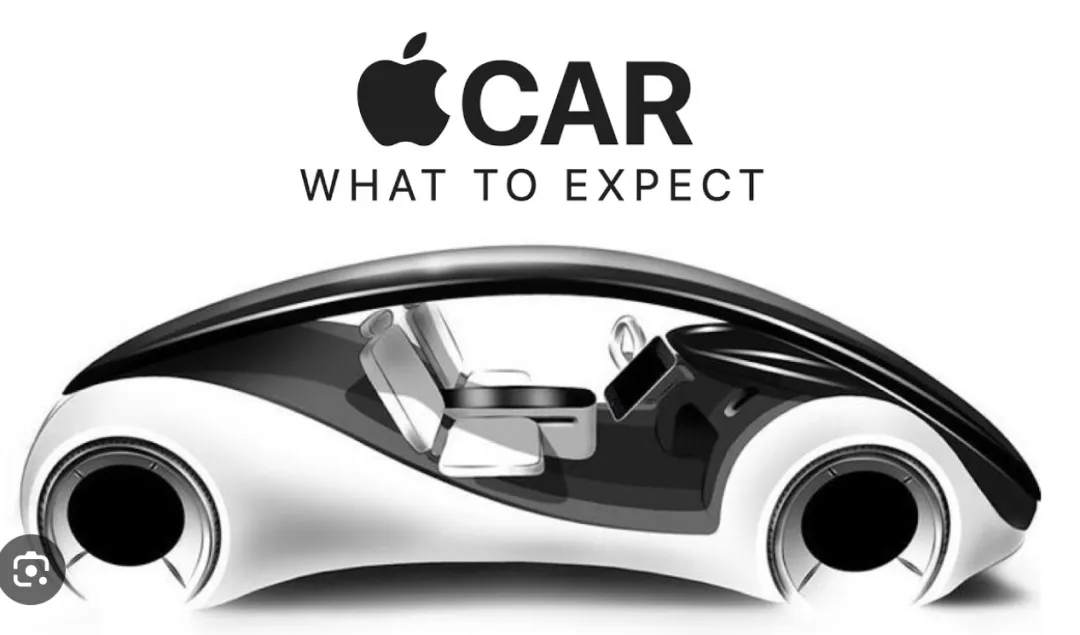
Apple made a wrong bet on car manufacturing | Image Source: Apple Explained
If Apple cannot inject AI into its hardware in the future, it would not only overturn Apple's value proposition of "hardware as a carrier for software," but also impact the software-hardware ecosystem that Apple prides itself on.
Eddy Cue, Apple's Senior Vice President of Services, has expressed to colleagues that Apple's dominant position in the tech industry is precarious.
Last month, the search volume for Google on Apple devices declined. Eddy Cue stated, "This has never happened in 22 years; AI is the reason." He acknowledged that users are increasingly relying on large language models for information.
Eddy Cue pointed out that Apple does not provide indispensable goods like ExxonMobil (a famous American oil company), and he worries that AI for Apple could be like the iPhone was for Nokia, with Nokia falling before Apple, and Apple potentially falling before AI.
He even bluntly stated that the iPhone could become irrelevant in ten years, "It sounds crazy, but it is indeed possible."
The greater challenge also comes from external sources; according to insiders, to comply with new EU regulations, Apple is working to modify its operating system to allow users to switch their default voice assistant from Siri to third-party options.
This means that if Apple does not make significant breakthroughs in voice assistants, users may not use Siri in the future, opting instead for AI assistants from OpenAI, Anthropic, Meta, Alphabet, X, or even DeepSeek.
Apple is not sitting idly by; according to employees, Apple's AI office in Zurich is working on a completely large language model-based Siri, aiming to make Siri more conversational and capable of information integration. This secret project is called LLM Siri.
Apple has thousands of analysts in its offices in Texas, Spain, and Ireland to review the accuracy of Apple Intelligence summaries, compare data discrepancies, and assess the frequency of AI hallucinations.
As for Apple's self-developed chatbot, some executives now want to transform Siri into a true competitor to ChatGPT.
To this end, the company has begun allowing Siri to access the open web and integrate multi-source data. According to employees, the internally tested chatbot at Apple has made significant progress in the past six months, with some executives believing its performance is now comparable to recent versions of ChatGPT.
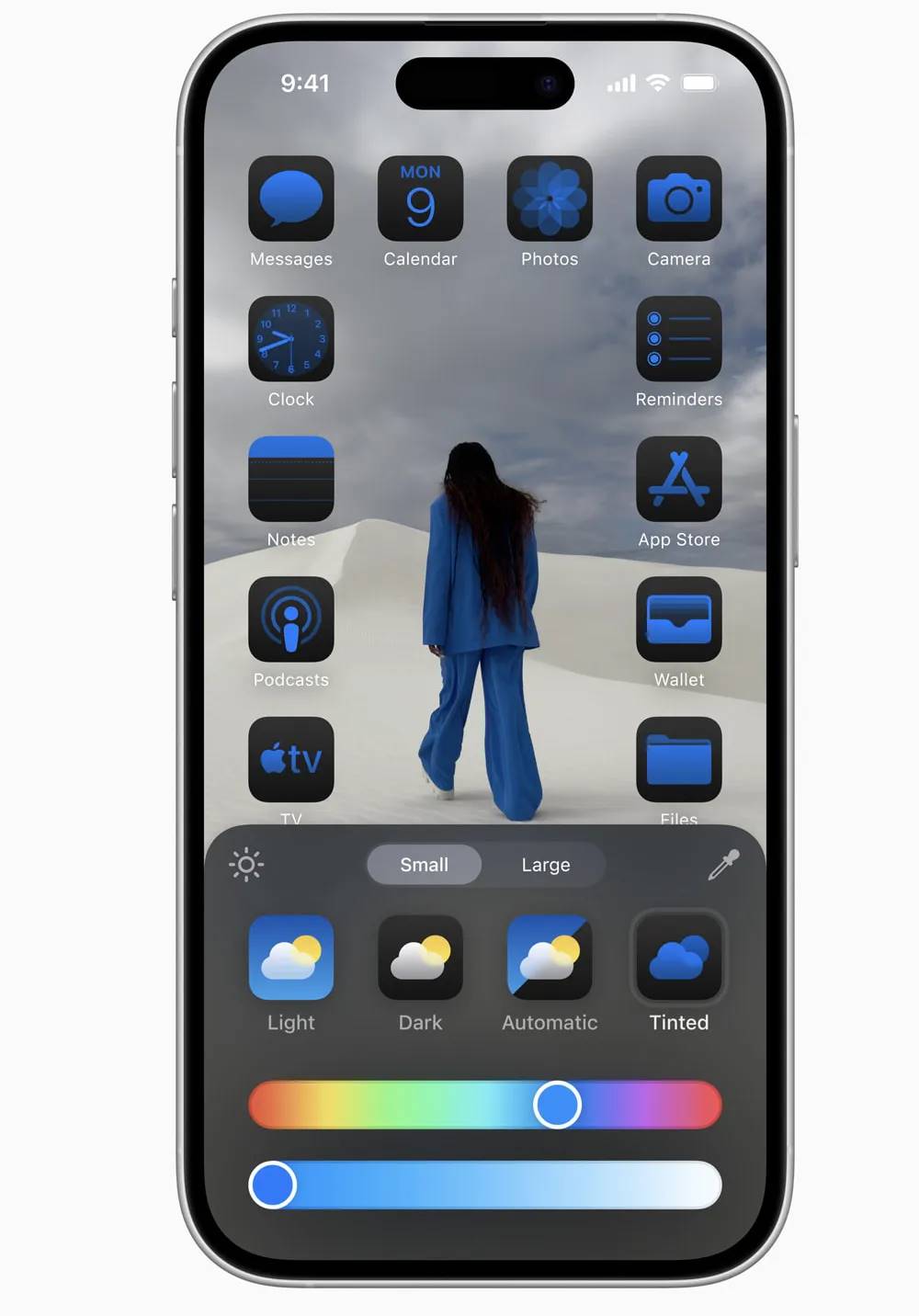
After waiting a year for the new system, is it just a color palette? | Image Source: Apple
Insiders at Apple revealed that for next month's WWDC, the company plans to focus on upgrading existing Apple Intelligence features and adding new functionalities, such as AI-optimized battery management and a virtual health coach.
However, a major upgrade for Siri, which was "promised" a year ago, is unlikely to be heavily mentioned at WWDC. Sources say that despite high hopes internally for "LLM Siri," Apple is preparing to market Apple Intelligence separately from Siri.
On one hand, they are concerned that the lagging Siri will hinder the company's AI promotion. On the other hand, Apple is also hesitant to announce new features months in advance again.
Do you remember Siri co-founder Kittlaus? He remains optimistic about Siri's AI transformation, stating, "All the model companies don't know what an assistant is, while Apple has been researching this concept since 2010." He believes that Apple just needs to make Siri smarter: "Apple has the devices and the brand; as long as they give Siri a 'new brain,' it has every chance to become the preferred assistant."
Fourteen years ago, the launch of Siri put Apple at the pinnacle of smart interaction, with Jobs' vision igniting the voice assistant market and giving rise to the chatbots we can now converse with in natural language.
However, today's Apple is struggling on the AI track, with the delays and fading of Apple Intelligence, the stagnation and obsolescence of Siri, and the failure of autonomous driving…
Mark Gurman, who has access to internal information, reveals not only Apple's apparent stagnation in AI but also the internal strategic wavering, the dilemmas in technological pathways, and the friction between core culture and the pulse of the times.
Those product strategies and corporate cultures that Apple once took pride in have become stumbling blocks in the face of AI, which is reshaping the tech landscape at an unprecedented speed.
Apple's future is overshadowed by its shortcomings in AI, and Cook has stated that it is just a matter of time. But how much time does Apple have left?
At least at next month's WWDC, we will not see the answers we are hoping for.
免责声明:本文章仅代表作者个人观点,不代表本平台的立场和观点。本文章仅供信息分享,不构成对任何人的任何投资建议。用户与作者之间的任何争议,与本平台无关。如网页中刊载的文章或图片涉及侵权,请提供相关的权利证明和身份证明发送邮件到support@aicoin.com,本平台相关工作人员将会进行核查。




